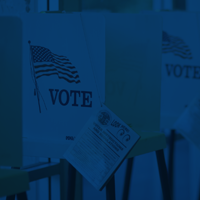-
Grants
17
-
Total Awarded
$7,580,000
-
Years
1987 - 2017
-
Categories
Grants
This grant was awarded in recognition of 100&Change semifinalist status.
Founded in 1982 by former U.S. President Jimmy Carter and his wife Rosalynn, The Carter Center has helped to improve life for people in more than 80 countries by resolving conflicts, advancing democracy, promoting human rights, preventing diseases, and improving mental health care. The Center is also a world leader in promoting fair and accountable democracy through monitoring elections. Since 1989, the Center has observed 100 elections in 38 countries, developed training programs that teach citizens to monitor their own elections, and published election standards that assist democracies as they develop election laws. Due to the differences in voting administration practices across the 50 U.S. states, The Carter Center has not, in the past, conducted election monitoring here. The proposed grant provides support for a project to develop a system for election observation in the U.S. in partnership with other organizations, including the National Conference of State Legislatures.
To support conflict resolution activities in Sudan and Ecuador and to strengthen conflict resolution organizations and their efforts to cooperate in conflict zones (over three years).
To support the Mental Health Task Force (over three years).
To support the International Negotiation Network and Conflict Resolution Program (over two years).
To produce and distribute a summary of the regional conference "Linked Future: Building Metropolitan Communities."
To support the Task Force on Mental Health Policy (over three years).
To support the International Negotiation Network and Conflict Resolution Program (over two years).
To establish and operate an international human rights council to prevent human rights abuses (over three years).
To operate the Mental Health Task Force (over three years).
To support a delegation to observe the U.S. presidential elections.
To support the creation and initial operation of a task force on mental health policy
To support expansion of the International Negotiation Network (over three years).
To support "Symposium on Families Coping with Mental Illness: Improving Public Understanding."
To support the Nicaraguan election project.
To support "Women and the Constitution: A Bicentennial Perspective."






